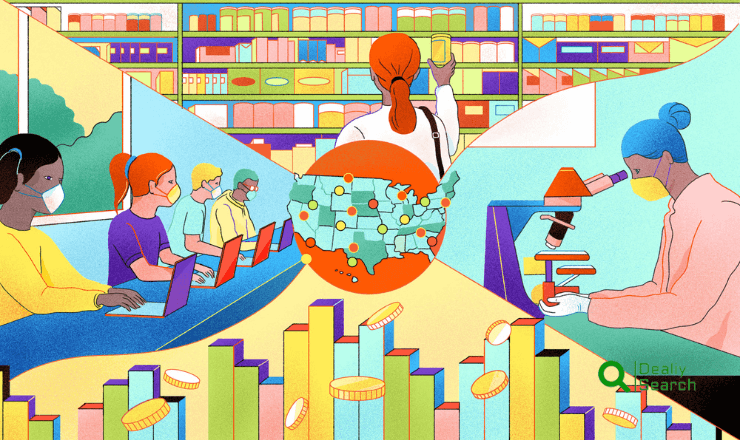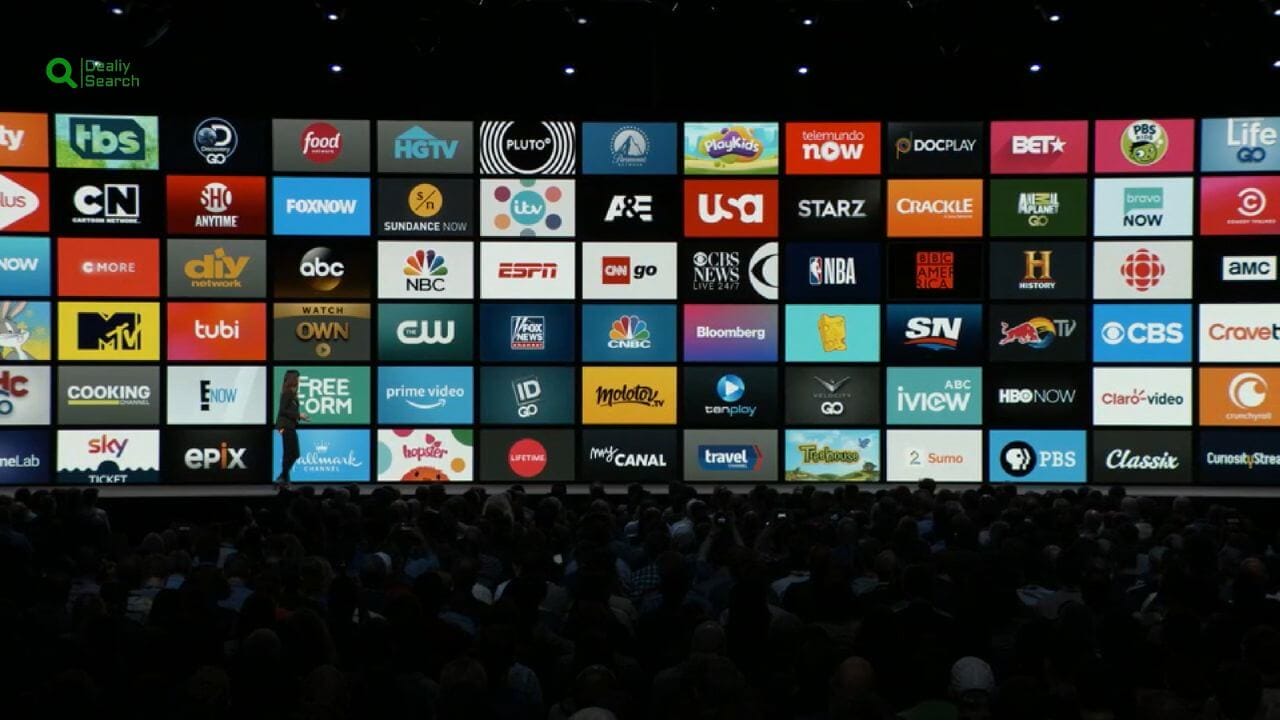Navigating the New Normal: Unveiling the Profound Effects of the Pandemic on Tech Sales

The COVID-19 pandemic reshaped industries worldwide, accelerating digital transformation and fundamentally altering consumer behavior. Among the sectors most profoundly impacted was the technology industry, which witnessed unprecedented shifts in sales trends, supply chains, and market demand. As businesses, educational institutions, and individuals adapted to remote work, online learning, and digital entertainment, the need for tech products and services skyrocketed.
From the surge in laptop and smartphone sales to the rise of cloud computing and subscription-based services, the pandemic created both opportunities and challenges for tech companies. While e-commerce and digital platforms flourished, supply chain disruptions and semiconductor shortages posed significant obstacles. Additionally, changing consumer preferences emphasized affordability, sustainability, and long-term digital solutions.
This article explores the profound effects of the pandemic on tech sales, analyzing key trends, challenges, and the evolving landscape of the industry. As we navigate the new normal, understanding these shifts can help businesses and consumers prepare for the future of technology in a post-pandemic world.
E-Commerce and Contactless Shopping
The pandemic accelerated the shift from physical stores to online retail, transforming the way consumers purchase tech products. With lockdowns and social distancing measures in place, e-commerce platforms experienced a surge in demand as people turned to digital shopping for convenience and safety. This rapid transition was further powered by artificial intelligence (AI) and automation, which enhanced customer experiences through personalized recommendations, chatbots, and predictive analytics.
AI-driven inventory management and automated supply chains also helped retailers optimize stock levels and streamline deliveries. The rise of subscription-based models reshaped tech sales, with consumers increasingly opting for services like cloud storage, streaming platforms, and software-as-a-service (SaaS) solutions over one-time purchases. This shift not only provided affordability and flexibility but also ensured long-term customer retention for businesses. As digital commerce continues to evolve, AI and automation will play a crucial role in shaping the future of tech sales, making transactions smoother and more efficient than ever before.
Shifts in consumer behaviour during the pandemic

The pandemic has drastically altered consumer behaviour, leading to significant shifts in the tech sales industry. With lockdowns and social distancing measures in place, more people have turned to online shopping for their tech needs. The demand for tech products has surged from laptops for remote work to smart home devices for enhanced comfort.
Moreover, the pandemic has accelerated the adoption of digital transformation across various sectors. Businesses have been forced to embrace remote work, cloud computing, and e-commerce solutions, creating a greater demand for tech sales companies to provide the necessary tools and services.
Changing Consumer Behavior in Tech Purchases
The pandemic significantly influenced consumer behavior in tech purchases, driving a stronger preference for affordability and sustainability. With economic uncertainty affecting spending habits, many consumers sought cost-effective alternatives such as budget-friendly gadgets, installment payment plans, and subscription-based services instead of outright purchases. Sustainability also became a key factor, with growing awareness of e-waste and environmental concerns pushing buyers toward energy-efficient devices and longer-lasting tech products.
Social media and digital marketing played a pivotal role in shaping purchasing decisions, as influencers, online reviews, and targeted advertisements influenced consumer choices more than ever before. Platforms like YouTube, TikTok, and Instagram became powerful channels for tech brands to showcase products, engage with customers, and drive sales. This shift in purchasing behavior reflects a more conscious and value-driven approach to tech consumption, shaping the future of the industry toward affordability, sustainability, and digital influence.
Challenges faced by tech sales companies during the pandemic

While the pandemic has presented opportunities, it has brought numerous challenges for tech sales companies. Supply chain disruptions, manufacturing delays, and logistics issues have impacted product availability and caused delays in deliveries. This has resulted in customer dissatisfaction and strained relationships with suppliers.
Furthermore, the economic downturn caused by the pandemic has led to reduced consumer spending in specific markets. Tech sales companies have had to navigate a shrinking customer base and heightened competition. Adapting to these challenges has required innovative strategies and agility in operations.
Opportunities arising from the pandemic for the tech sales industry

Despite the challenges, the pandemic has opened up new opportunities for the tech sales industry. As remote work becomes more prevalent, the demand for collaboration tools, video conferencing software, and cybersecurity solutions has skyrocketed. Tech sales companies that offer these services have experienced significant growth.
The increased reliance on technology has created a greater need for tech support and customer service. Companies that specialize in providing remote assistance and troubleshooting services have seen a surge in demand and have been able to expand their operations.
The Role of 5G and Emerging Technologies
The rollout of 5G and the rise of emerging technologies have significantly influenced tech sales and consumer behavior in the post-pandemic era. The introduction of 5G networks has led to a surge in demand for 5G-compatible smartphones, tablets, and other connected devices, as users seek faster internet speeds and lower latency for seamless remote work, gaming, and streaming experiences.
At the same time, augmented reality (AR) and virtual reality (VR) technologies are gaining traction, with applications extending beyond gaming into education, healthcare, and virtual workspaces. As these technologies continue to evolve, they are expected to reshape everyday interactions, making digital experiences more immersive, interconnected, and efficient in the years ahead.
Strategies to adapt to the new normal in tech sales
Companies must embrace innovative strategies to navigate the new normal in tech sales. First and foremost, a solid online presence is crucial. Investing in e-commerce platforms, user-friendly websites, and digital marketing campaigns can help reach a wider audience and drive sales.
Moreover, companies should focus on building solid relationships with their customers. Providing excellent customer service, personalized recommendations, and timely support can enhance customer loyalty and satisfaction.
Furthermore, diversifying product offerings and exploring new markets can help mitigate risks and expand revenue streams. Adapting to changing customer needs and staying ahead of emerging trends is essential in the rapidly evolving tech sales landscape.
Case studies: Successful tech sales companies during the pandemic
Several tech sales companies thrived during the pandemic by adapting to the new normal. One example is XYZ Tech, an online retailer specializing in home office equipment. By quickly expanding its product range to include ergonomic furniture, noise-cancelling headphones, and other work-from-home essentials, XYZ Tech capitalized on the remote work trend and experienced significant growth.
Another success story is ABC Solutions, a tech sales company that provides cloud-based software solutions. ABC Solutions attracted new customers and strengthened existing relationships by offering free trials, discounted packages, and tailored support for remote teams. Their ability to adapt quickly to changing market demands allowed them to outperform competitors.
The future of tech sales post-pandemic
As the world gradually recovers from the pandemic, the tech sales industry is poised for further growth. The lessons learned during this challenging period will shape the future of tech sales. Remote work and digital transformation will remain significant factors driving the demand for tech products and services.
Looking ahead, tech sales companies should continue to prioritize innovation and agility. Investing in emerging technologies such as artificial intelligence, virtual reality, and the Internet of Things can help companies stay ahead of the curve and meet evolving customer needs.
Tips for tech sales professionals to thrive in the new normal
For tech sales professionals, adapting to the new normal requires a combination of skills and strategies. Building solid client relationships, staying updated on the latest industry trends, and continuously sharpening sales techniques are essential.
Leveraging data analytics and CRM tools can provide valuable insights into customer preferences and enable more targeted marketing and sales efforts. Continuous learning and professional development are crucial for staying competitive in the dynamic tech sales landscape.
Tools and technologies to enhance tech sales in the post-pandemic era
The post-pandemic era, tech sales professionals can leverage various tools and technologies to enhance their sales efforts. Customer relationship management (CRM) software can help manage customer interactions, track leads, and streamline sales processes. Sales enablement platforms can provide sales teams with the necessary resources and content to effectively engage customers.
Furthermore, video conferencing and virtual meeting tools have become indispensable for remote sales presentations and demonstrations. These technologies allow sales professionals to connect with customers more personally and interactively despite physical distance.
How has the pandemic affected tech sales globally?
The effects of the pandemic on tech sales have been felt globally. Lockdowns, travel restrictions, and economic uncertainties have impacted consumer spending across countries. However, the extent of the impact has varied depending on the local context and government responses.
In some regions, the shift to remote work and digital transformation has accelerated, leading to increased tech sales. Economic downturns and reduced consumer spending have posed challenges for tech sales companies in other areas. Understanding the specific dynamics of each market is crucial for adapting strategies and seizing opportunities.
Frequently Asked Question
How did the pandemic impact global tech sales?
The pandemic significantly increased demand for technology products and services. With the rise of remote work, online learning, and digital entertainment, sales of laptops, tablets, smartphones, and cloud-based services surged. However, supply chain disruptions and chip shortages also caused product availability issues and price hikes.
What role did e-commerce play in tech sales during the pandemic?
E-commerce became the dominant channel for purchasing tech products as physical stores faced restrictions. Online retailers saw record sales due to convenience, contactless delivery, and better price comparisons. Subscription-based services, such as cloud software, streaming platforms, and digital payment solutions, also saw exponential growth.
How did consumer behavior change in tech purchases?
Consumers shifted towards affordability, sustainability, and convenience. The demand for refurbished and second-hand tech products increased, and buyers relied more on digital marketing and social media reviews before making purchases. Additionally, subscription-based models for software and entertainment gained popularity.
What were the biggest challenges faced by tech companies?
Tech companies struggled with supply chain disruptions, chip shortages, and increased production costs. Many had to adjust pricing, delay product launches, and find alternative suppliers to keep up with demand. Additionally, cybersecurity concerns rose as more people worked and shopped online.
What does the future hold for tech sales in the post-pandemic era?
Tech sales are expected to remain strong, with continued growth in AI, 5G, cloud computing, and smart devices. Businesses must adapt to changing consumer behaviors by focusing on e-commerce, personalized marketing, and flexible pricing models. Hybrid work environments and digital transformation will further shape the industry’s future.
More Related Post: COVID-19 Pandemic Reshaped the Tech Industry
Conclusion
The pandemic has had a profound impact on the tech sales industry. While presenting challenges, it has also created new opportunities for companies willing to adapt. By understanding shifts in consumer behaviour, embracing innovative strategies, and leveraging tools and technologies, tech sales professionals can navigate the new normal and thrive in the evolving landscape. Embracing change and staying agile will be crucial to success in the post-pandemic era.





